ICT Enabled Classroom
Today, ICT has progressed to become an integral part of the education system. The objectives of ICT are to connect the gap between the parents, educators, and students by prompting viable, cooperative and straightforward modes of communication. It likewise gives advanced information exchanging ways for educational institutions such as colleges and universities to pass on or exchange information. Thus, it plays a very crucial role in education, especially in the administration and management of institutions. ICT brings us enhanced modes of communication. It is also very Cost-efficient and eco friendly (since paperless). It has better teaching and learning methods and enhanced data security. It promotes and improves the digital culture in colleges and universities. It has web-based LMS tools that connect students, educators, scholars, researchers, and education personal together. Thus it improves the administration and enhances the quality and efficiency of education. Hence ICT enabled classrooms in today’s education are very much in need.
Mankar College has 7 ICT Enabled rooms, these are:
- Audio Visual room (AV room)
- Software Lab
- Room No. 2/6
- Rabindra hall,
- Smart Room
- G1 and G2(Geography)
- Auditorium Hall

Audio Visual room (AV room)
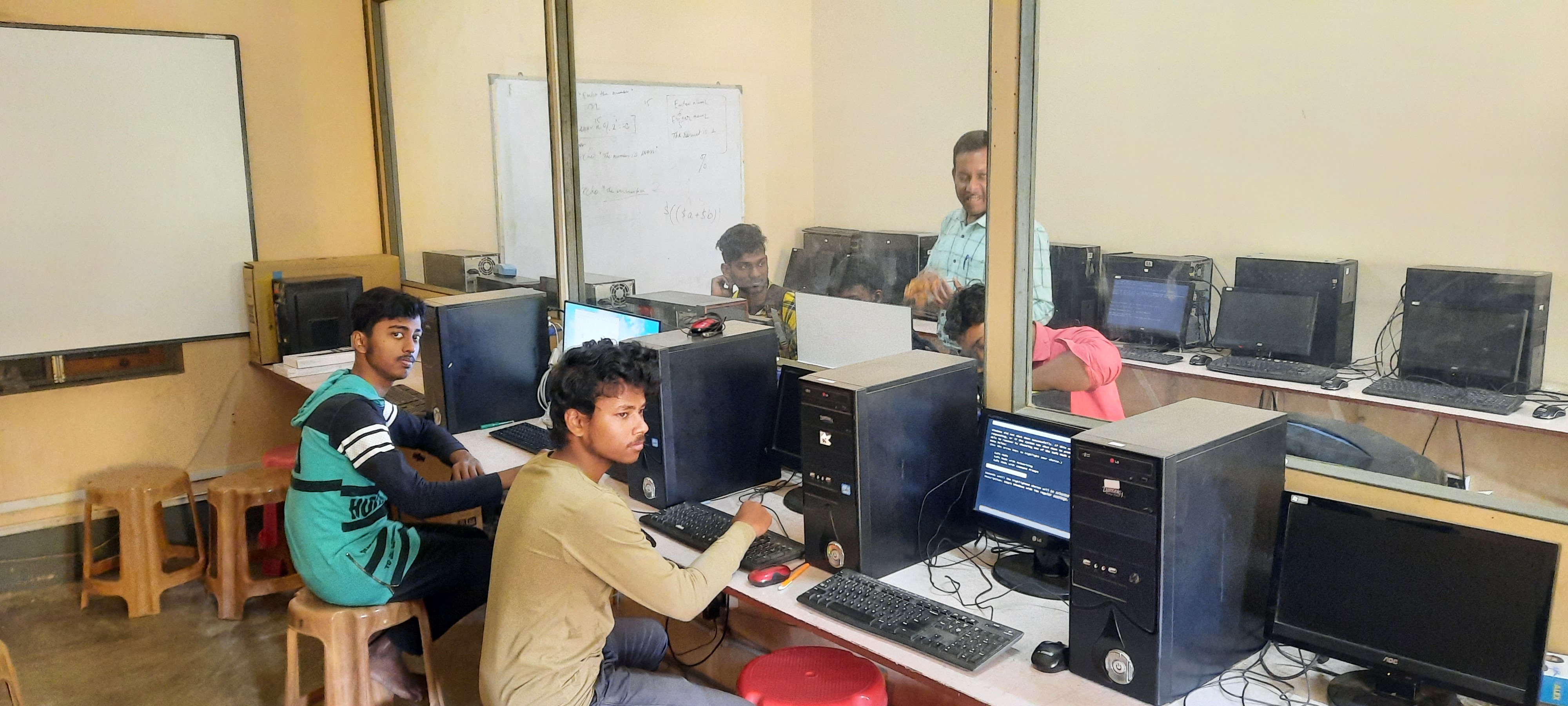
Computer Software Lab

Room No. 2/6

Rabindra Hall

Smart Room

G1 Lab
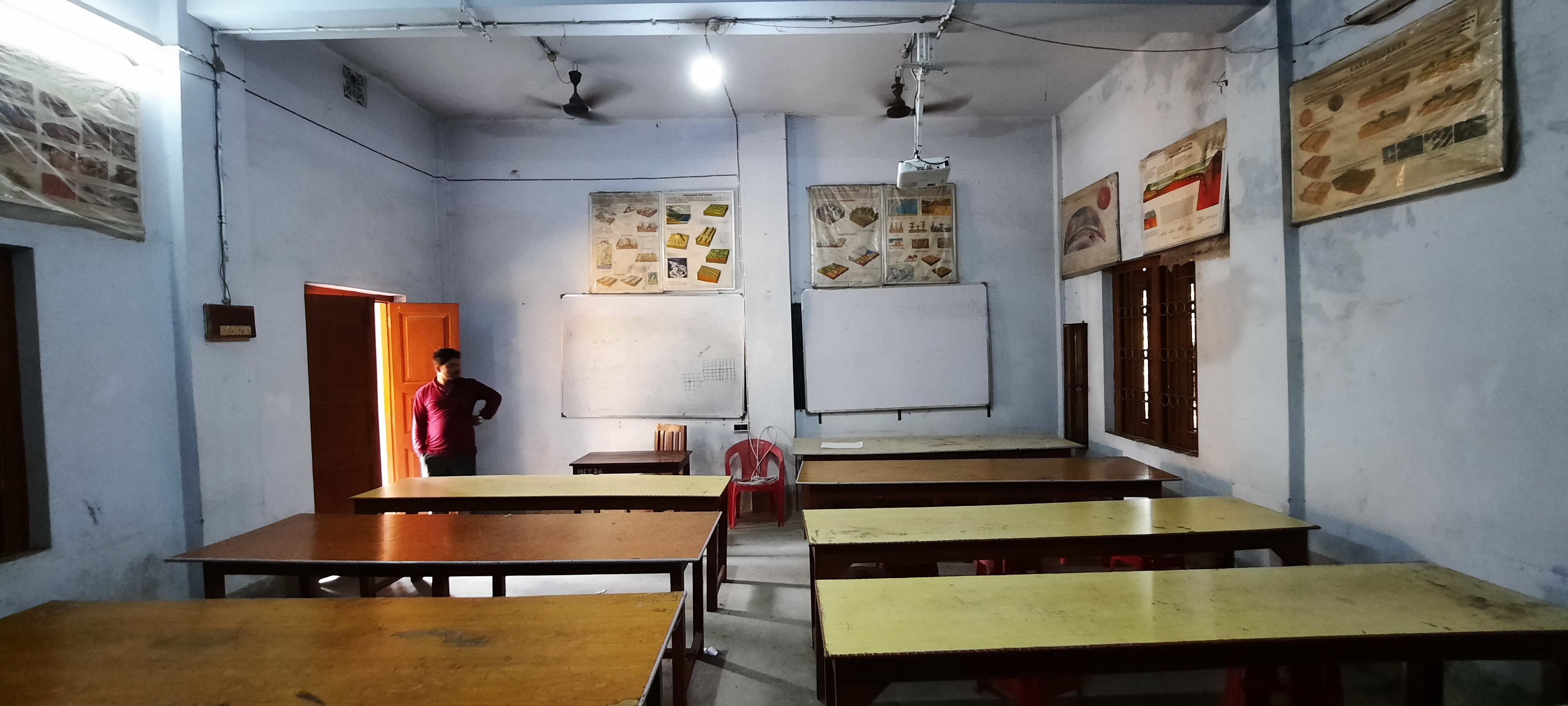
G2 Lab

Auditorium Hall
Role of ICT in Teaching Learning Process
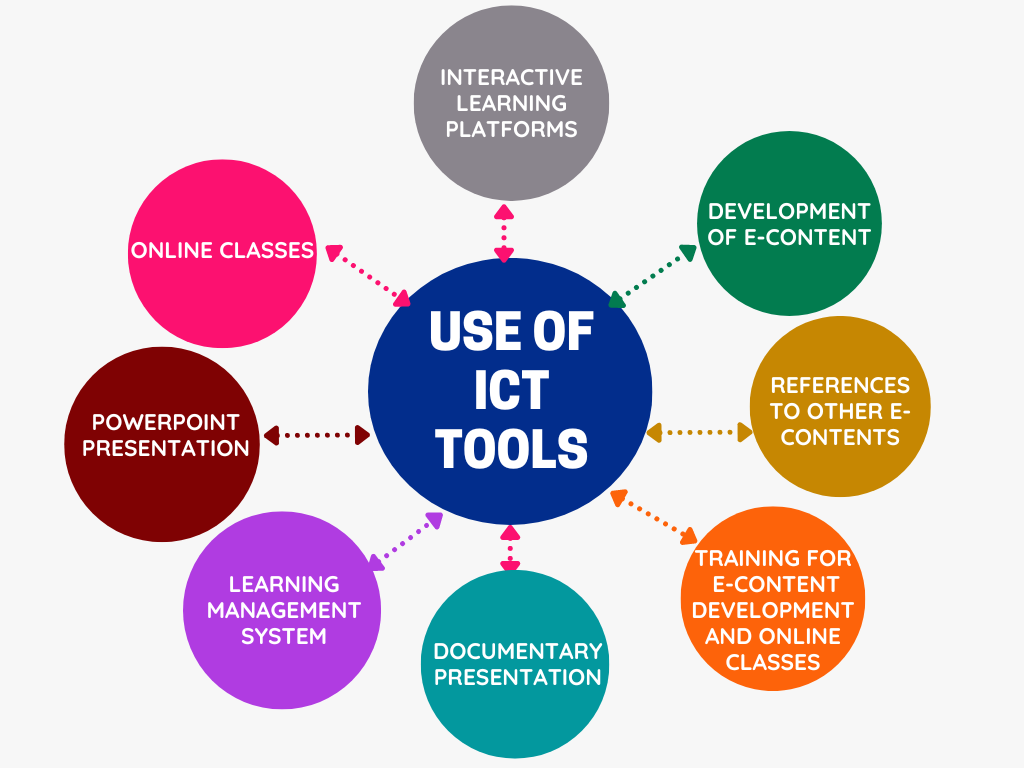
The changing times have called for transition in the education system and inclusion of technology assisted pedagogy. A few years ago, it was inconceivable that the traditional teaching learning will be unfeasible and the mainstream education system will have to fully depend on technology assisted systems for every academic activity, be it for classes, examinations or convocations. In Mankar College, ICT enabled teaching learning process was well promoted and encouraged to give better learning experience to our students, way before the pandemic struck. After the pandemic, the emphasis on inclusion of ICT tools has been doubled and the college is tirelessly working towards developing the infrastructure required to make fully functional ICT enabled classrooms in every department. Some of the ways in which our college has incorporated ICT tools are as follows.
1. Power Point Presentation (PPT):
Most of the departments such as the department of Geography, Computer Science, English and History use PPT presentations not only in the online classes but also in the offline classes. The PPTs are made available to the students via flash drive and sometimes uploaded in the Google Classrooms. These PPTs act as readymade notes for the students which can be accessed from anywhere and are also portable.
2. Online Classes:
Online classes maintained the continuity of education during the pandemic when conducting physical classes was impossible. All the departments of Mankar College conducted online classes initially via Zoom and later on via Google Meet to fulfil the academic obligations. The college provided personal G-suite accounts to all the teachers so that they can conduct classes, record sessions for later use and use various apps and extensions to effectively run classes online.
3. Learning Management System (LMS):
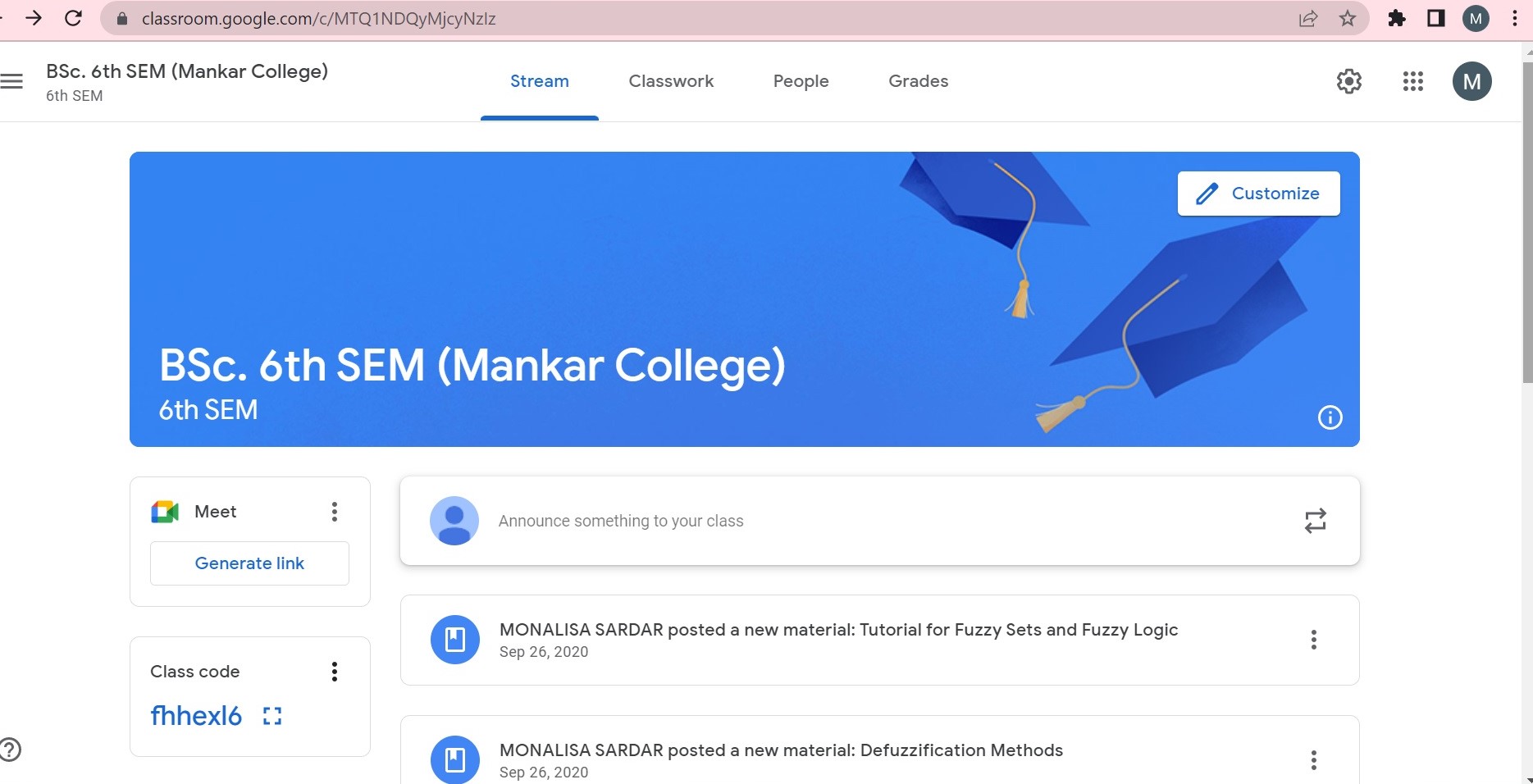
LMS offers a platform where every student has equal access to all the study materials, tests, assignments etc. Most of the departments such as the department of Mathematics, English, Chemistry and Physics have used Canva, Google Classrooms etc. for every subject where all material related to their subjects were uploaded and maintained. They even conducted multiple tests and assessed the performance of the students on these platforms. This was really helpful to the students during the pandemic who had no access to books and libraries during the period.
4. Interactive Learning Platforms:
Interactive learning platforms are a great way of engaging students while they are learning online without the supervision of a tutor. The tests and quizzes that are inserted in between the lessons not only keeps the students focussed but also evaluates how much the student has learned. The department of Computer Science, Geography and Bengali used different Interactive Learning Platforms such as Quizziz, InsertLearning, H5P, podcast etc.
5. Documentary Presentations:
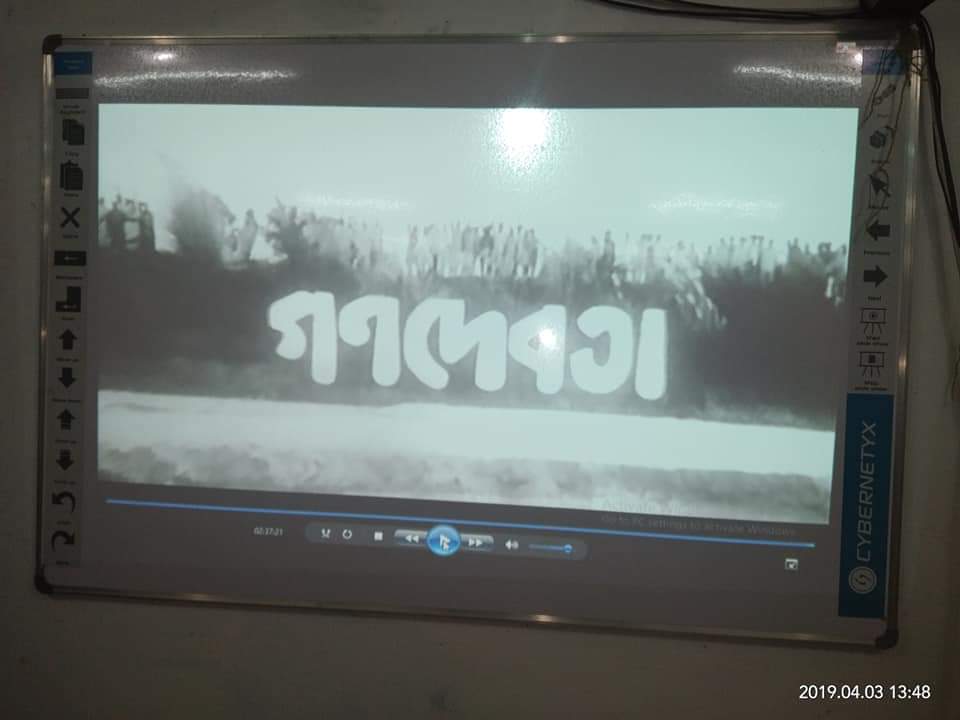
Documentary presentations by the language departments is a tradition they have followed past several years. Every year the department of Bengali, Sanskrit, English, Hindi and Santali arrange documentary presentation for the students in various languages, which widens the perspective of the students beyond the arena established by the syllabus.
6. Development of E-content:
It is the collective effort of all departments of Mankar College to develop and maintain our own repository of E-content called “E-Gyan Udyog” available on the college website. Almost all the departments of Mankar College have been vigorously involved in the development of E-content using the infrastructure provided by the college by means of an E-content development studio and recording equipment. These E-contents make such material available to the students which are sometimes not explained appropriately in books or are available in the web in paid version.
7. References to other E-contents:
All the departments make sure that the students are benefitted from the existing reliable E-content repositories such as N-LIST, e-PG Pathshala, Swayam etc. The links to the official websites of these repositories are also given in the college website for easy accessibility.
8. Other uses of ICT tools:
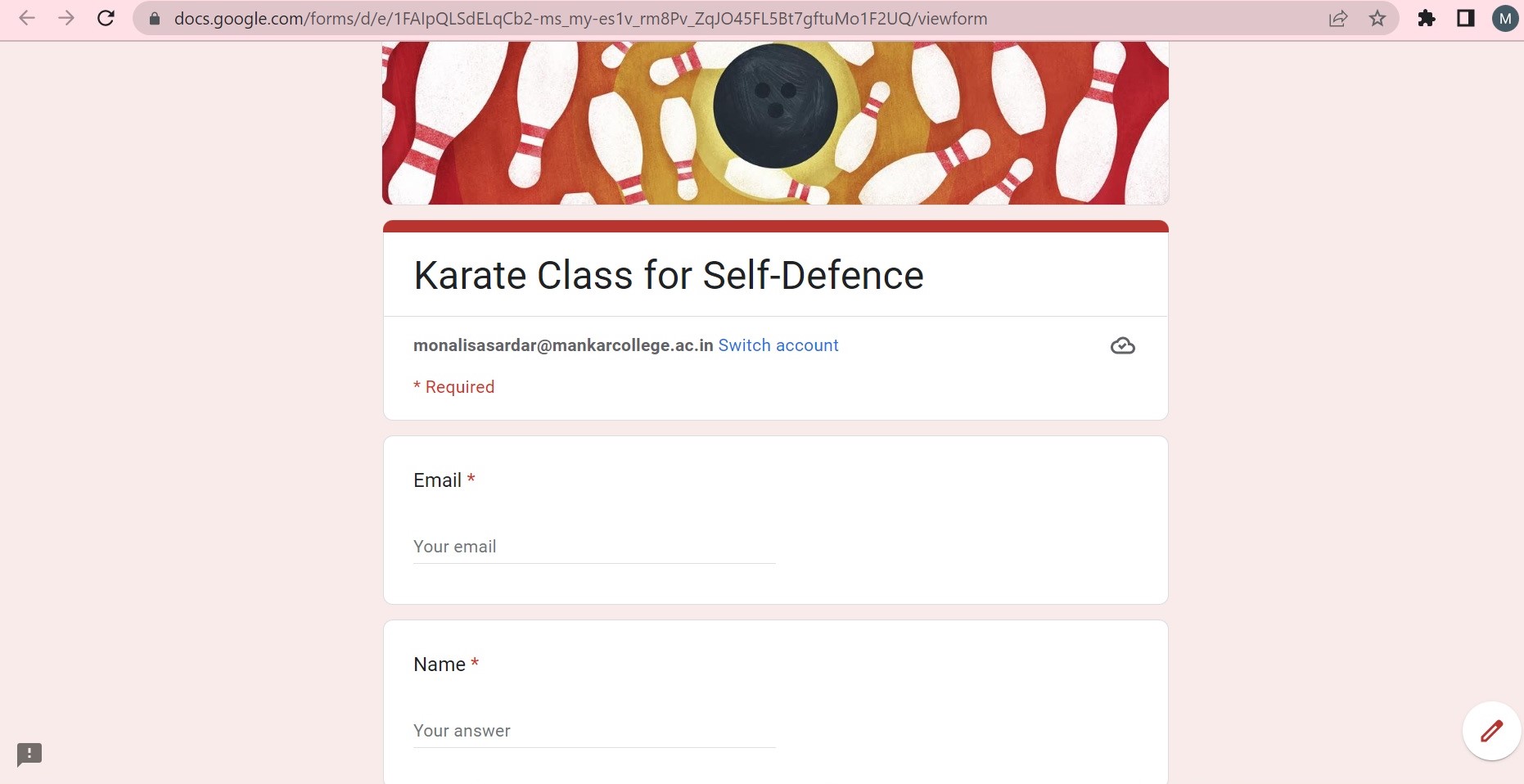
ICT tools have widely used by the college for various purposes other than the purely academic. Google forms are used to collect data for various co-curricular activities such as quiz competition, NCC, NSS, cultural programmes, Karate classes, feedbacks and selection of CBCS subjects. Most of the information and notices for classes, departmental meetings etc. are delivered using digital tools.
9. Training for E-content development and Online Teaching:
Mankar college has encouraged and facilitated the teachers to undergo trainings in order to adapt to the pressing need of inclusion of technology into their teaching practice. Many teachers attended FDPs where they could learn and gain practical knowledge about conducting online classes and developing E-content and were introduced to various platforms such as Google Meet, Google Classrooms, Edmodo, Youtube channels, Interactive Learning Platforms etc.
Student Centric Approach
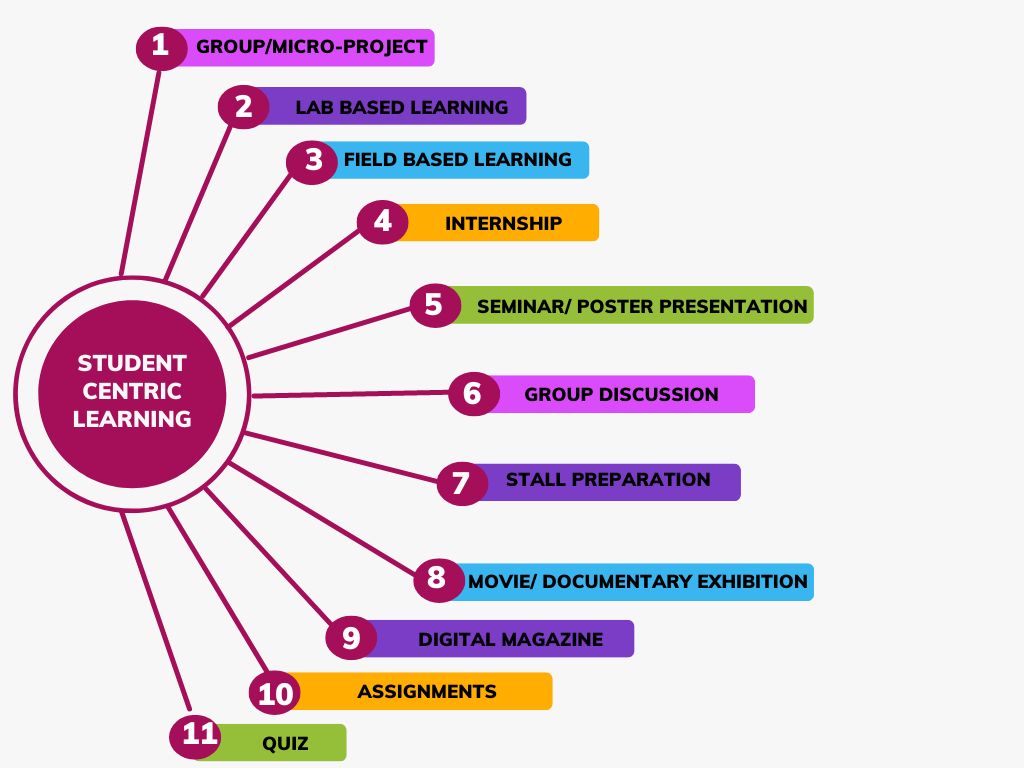
The traditional teaching-learning process is teacher centric and restricts the learning of the students to classroom environment. Students differ not only in their cognitive abilities but also in their perception of concepts. It is the obligation of educational institutions to harness the potentiality of every student by practicing pedagogical techniques which cater to their individuality.
In Mankar College, it is our aim to provide a holistic experience to our students where they can learn, grow and discover the innate qualities, they were unaware of. We facilitate and encourage all our departments to include student-centric activities in the teaching-learning process to create an environment suitable for students of diverse calibre to develop and become valuable citizens.
The college has adopted several student centric activities which can be broadly categorised as Experimental Learning, Participative Learning and Problem Solving Learning.
Experimental Learning
1. Micro-projects:
Micro-projects are a great way to bring out the individual competence, focus and task management skills of the students. Many departments assign micro projects where a small size task is given to students individually, based on the topics in the syllabus. Students perform individual research on the topic and figure out distinct ways to develop an end product.
2. Group projects:
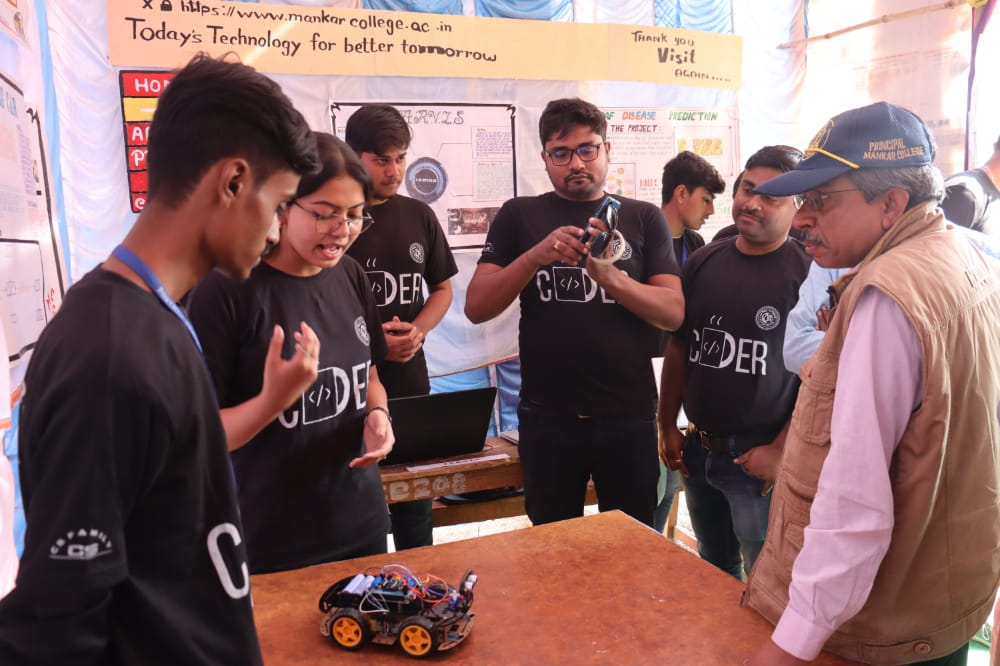
Group projects can reinforce a host of skills that are pivotal for the professional sphere. One must learn to voice their perspective, resolve differences, discuss and delegate responsibilities and work in coordination with others in order to accomplish a massive and complex task. Some departments assign group projects to students wherein a group of students are assigned to collaborate, plan, design and produce an end-product. The Department of Computer Science assigns group projects every year, to their students in the final semester.
3. Field based learning:
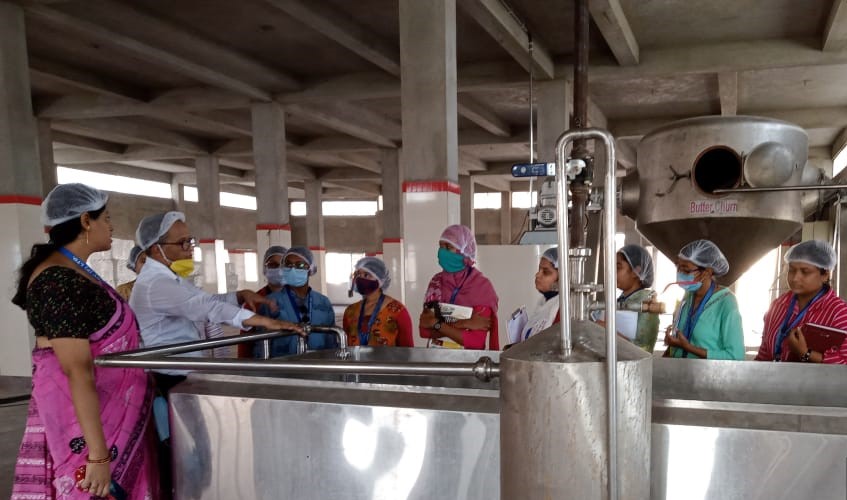
Field based learning exposes students to the environment of the industry and helps them get acquainted with the culture of the field they are pursuing. Almost all of the departments take their students for field visits where they can get a firsthand experience of the things they are studying in their classrooms. The Department of Geography takes the students of every semester for field study near and around the college. The Department of Nutrition takes their students yearly to any industry producing edible items.
4. Lab based learning:
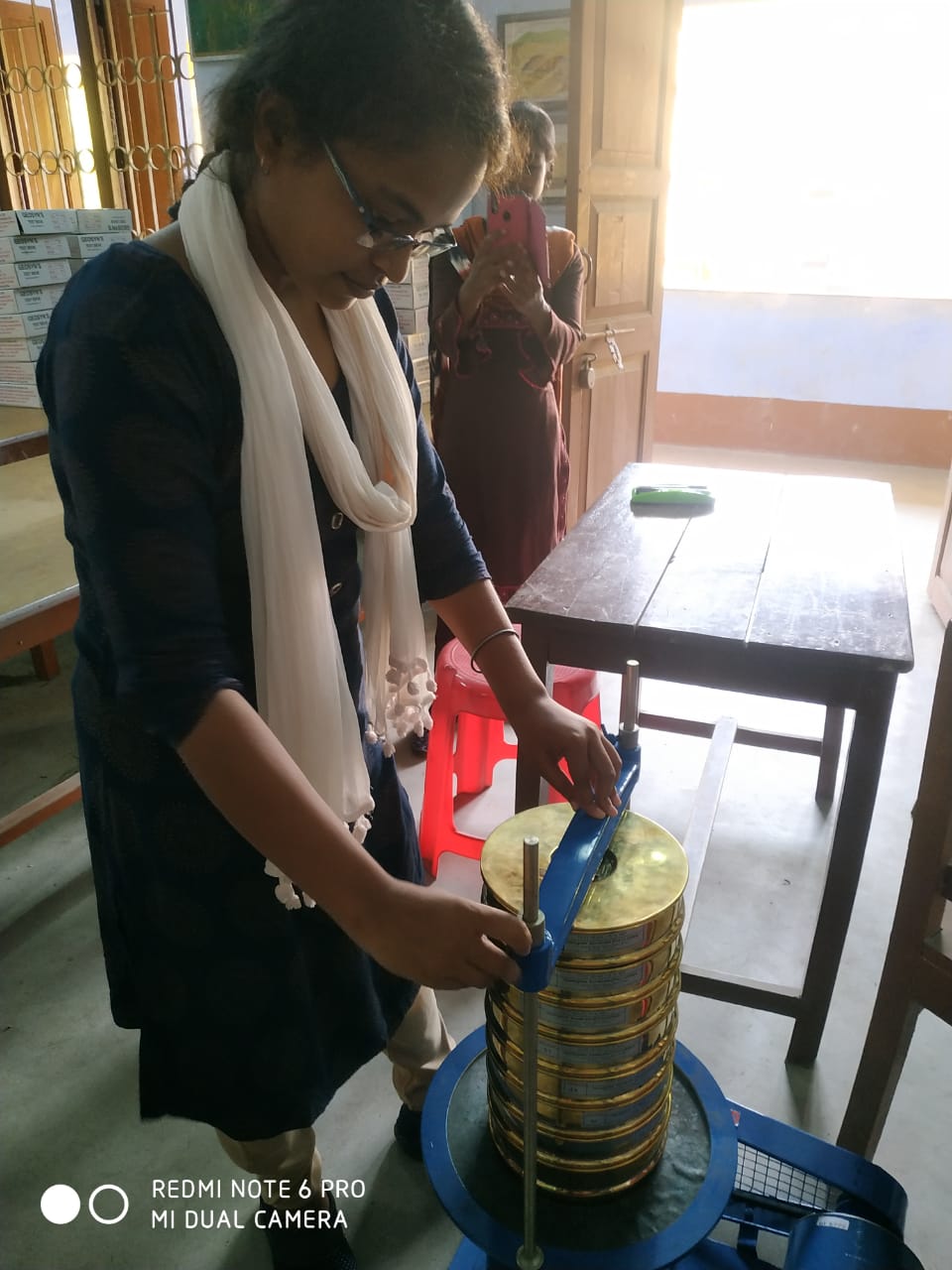
Learning in practical labs is essential for students to have thorough knowledge of their subjects. In labs students can put into practice the things they have studied in their classrooms. All the departments that have practical-based syllabus emphasise on students regularly attending the labs so that their skills can be honed before venturing out in the real world. The Department of Computer Science, Geography, Nutrition, Chemistry and Physics have well equipped labs to help students perform practical work.
5. Internship:
Internship not only gives a short-term work experience to the students but also helps them to apply the learned knowledge to a real-life work environment. The students can figure out what interests them the most and choose a career path accordingly. Some of the departments send their students for internship during the semester break. In the past, it has also given the students an edge over others during job interviews. Every year students of 5th semester of the Department of Computer Science are sent for internship to various organizations during semester break.
Participative Learning
1. Students’ seminar:
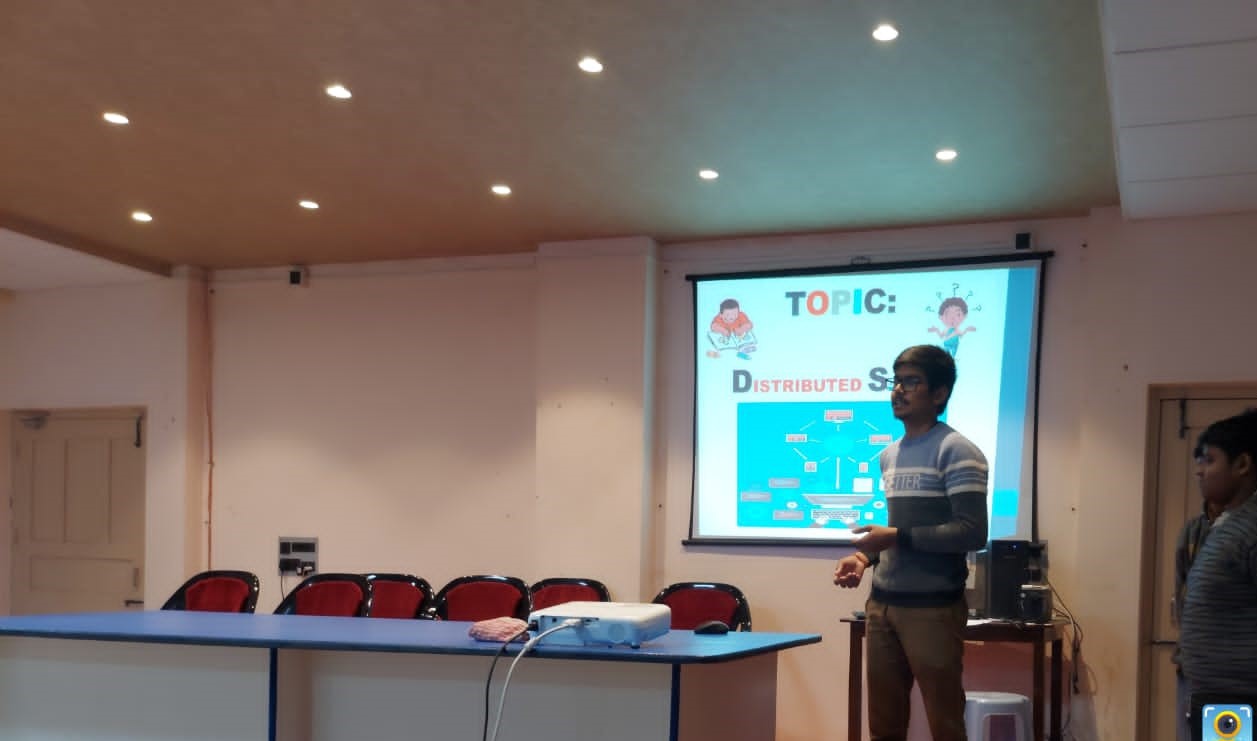
In Mankar College, we understand that it is crucial to teach students to present and verbalise the concepts they know and understand. Almost all the departments conduct students’ seminars where students prepare a presentation and present it in front of their teachers and classmates either individually or as a group. It promotes creativity, organization skills, public speaking skills and removes stage fright. The Department of Political Science takes special care in assigning topics to the students that depict the present geo-political scenario of the present world.
2. Poster presentation:
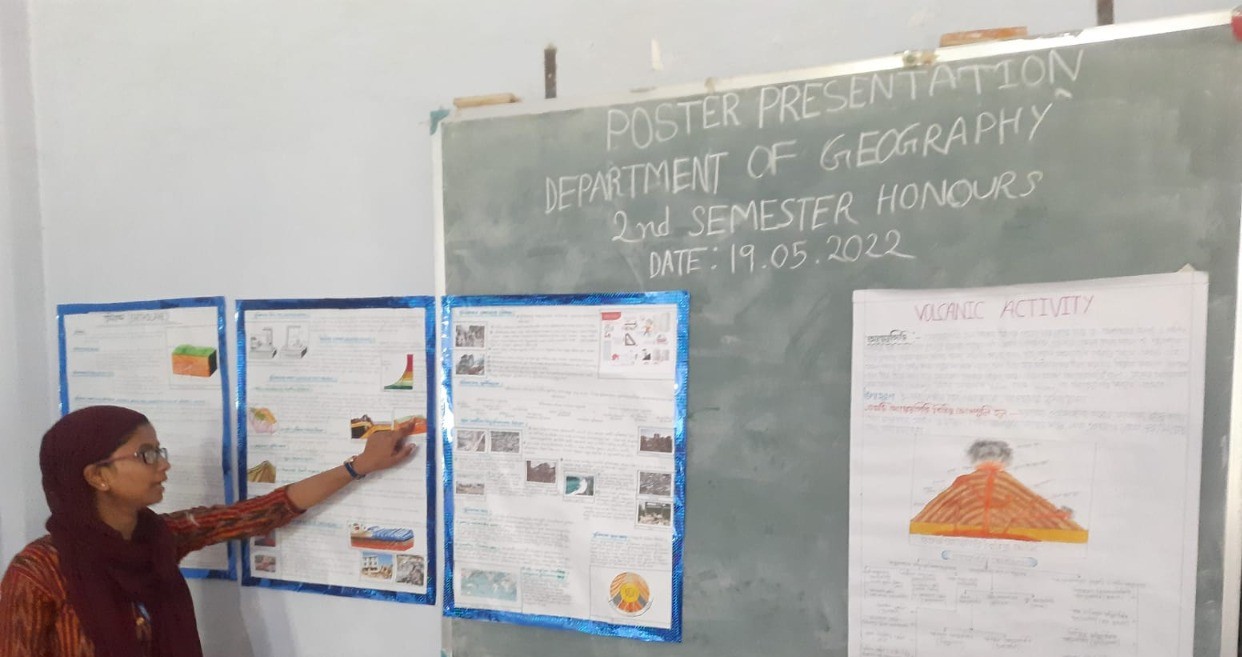
Participating regularly in poster presentation boosts the confidence of the students and promotes creativity among students as they have to summarise a concept and organize it on a single sheet of poster. Many departments conduct poster presentation for their students where they prepare a poster based on a topic and present it to their class or invited guests. The Department of Nutrition conducts poster presentation for all the students every year and invites other departments as observers.
3. Group discussion:
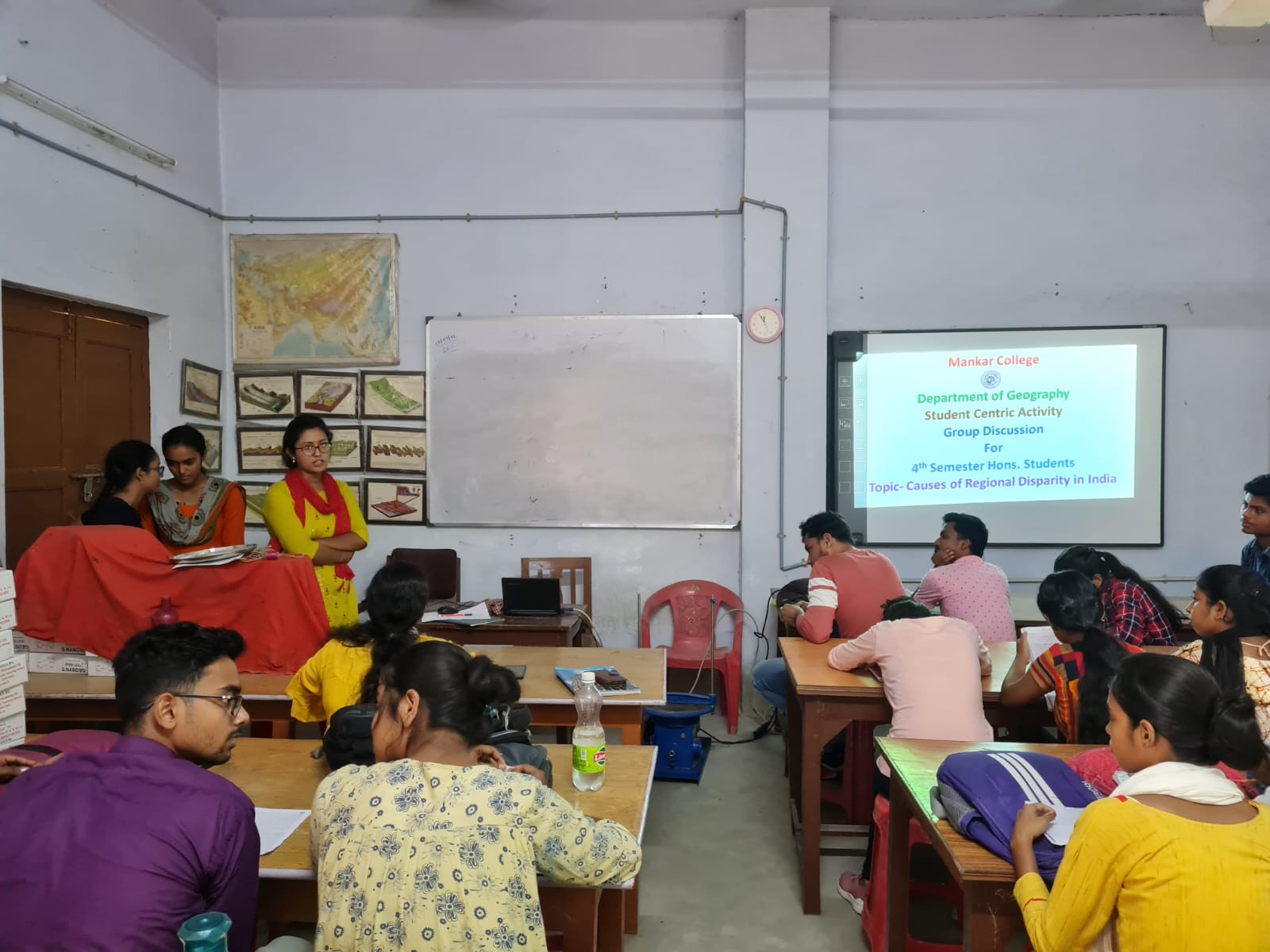
Group discussion is a great way of engaging students in presenting their ideas and assessing their understanding of a given topic. Many departments conduct group discussion in the class which motivates students to study the topic intently and develop their understanding of the topic.
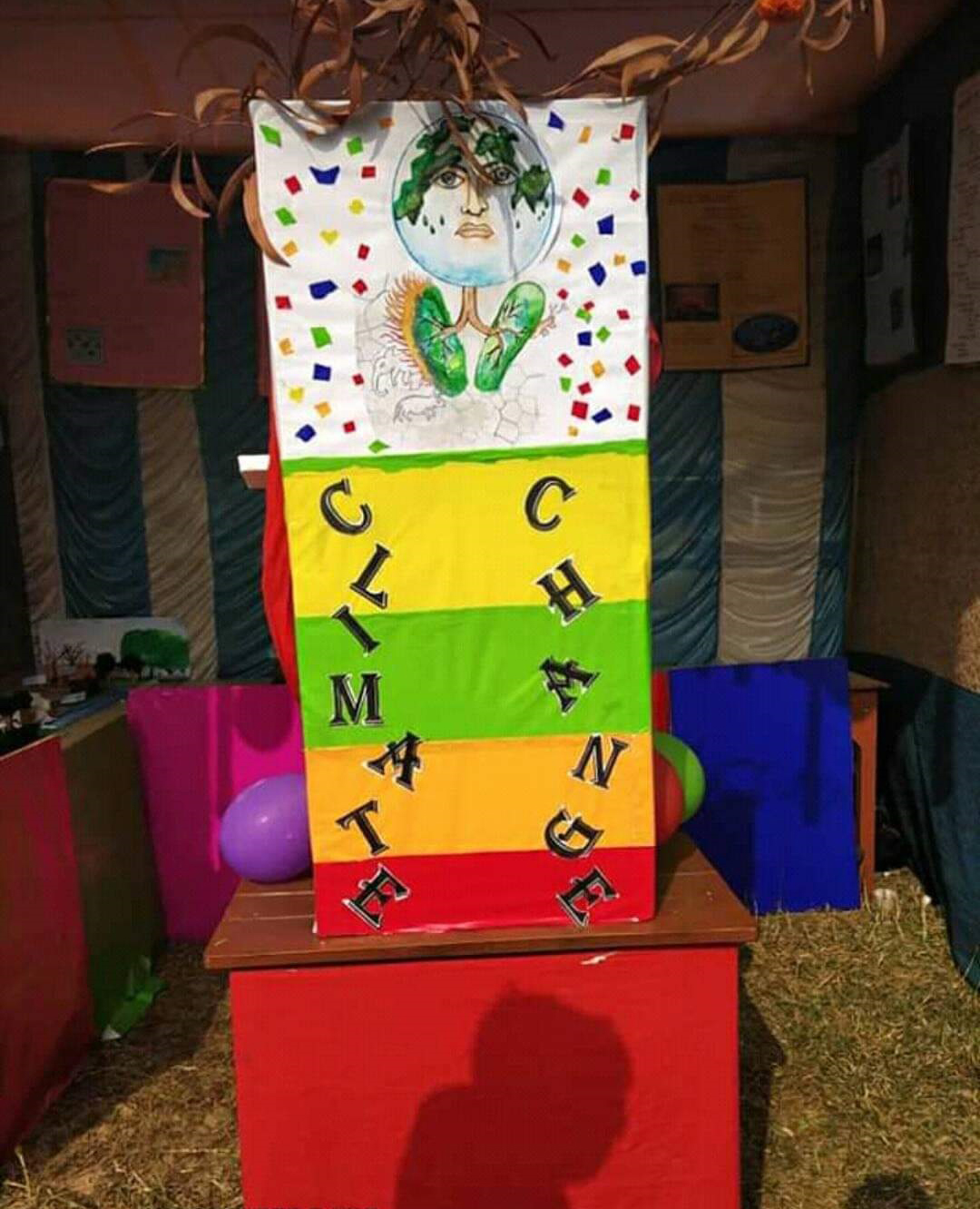
4. Stall preparation:
Almost all the departments participate in stall preparation where every department showcases diverse ideas based on a theme related to their field. This activity brings out the creativity of the students, promotes student interaction and teamwork and develops leadership qualities in the students. Every year the college conducts a Stall Preparation Competition and judges from other colleges are invited to select the winner.
5. Movie/ Documentary exhibition:
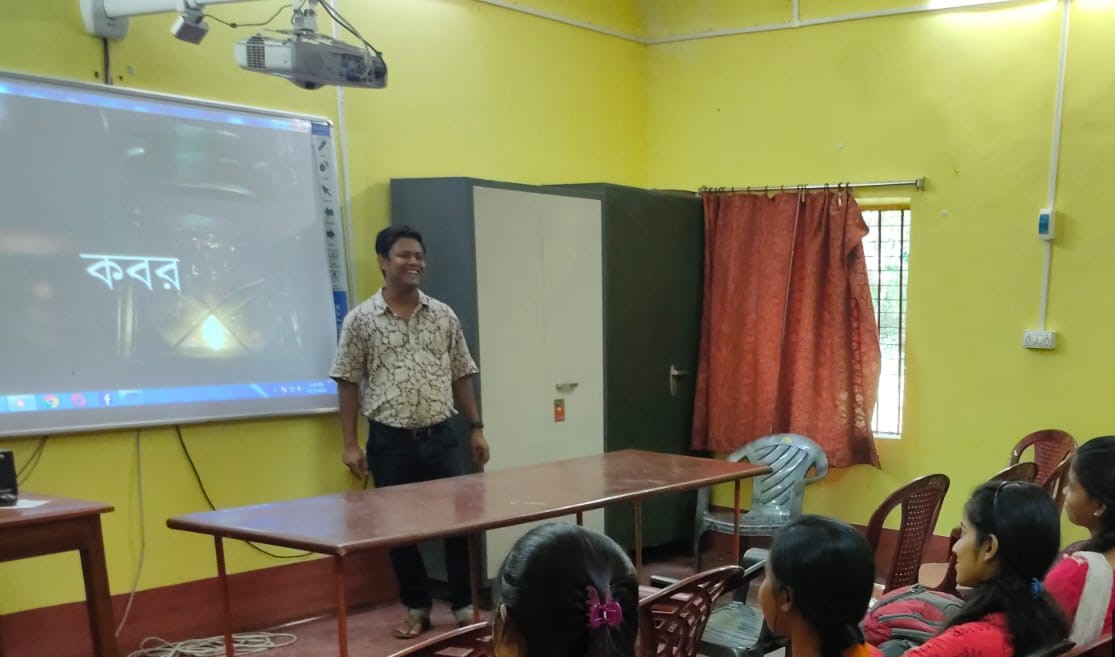
Movie/ documentary exhibition are a great way of educating students about repressed issues, acquainting them with people of all walks of life and exposing them to the various phases of the society they are currently living in. Every year movie/documentary exhibition is conducted over a few days and movies in various languages are shown. The language departments i.e., the Department of English, Hindi, Bengali and Sanskrit take the initiative in selecting the movies/documentaries that will be shown.
6. Review writing:
Review writing demands extensive study of the given topic. Involving students in review writing not only enhances their knowledge base but also promotes critical thinking. Many departments assign students with review writing on the topics discussed in class or closely related to their syllabus.
7. Magazine:
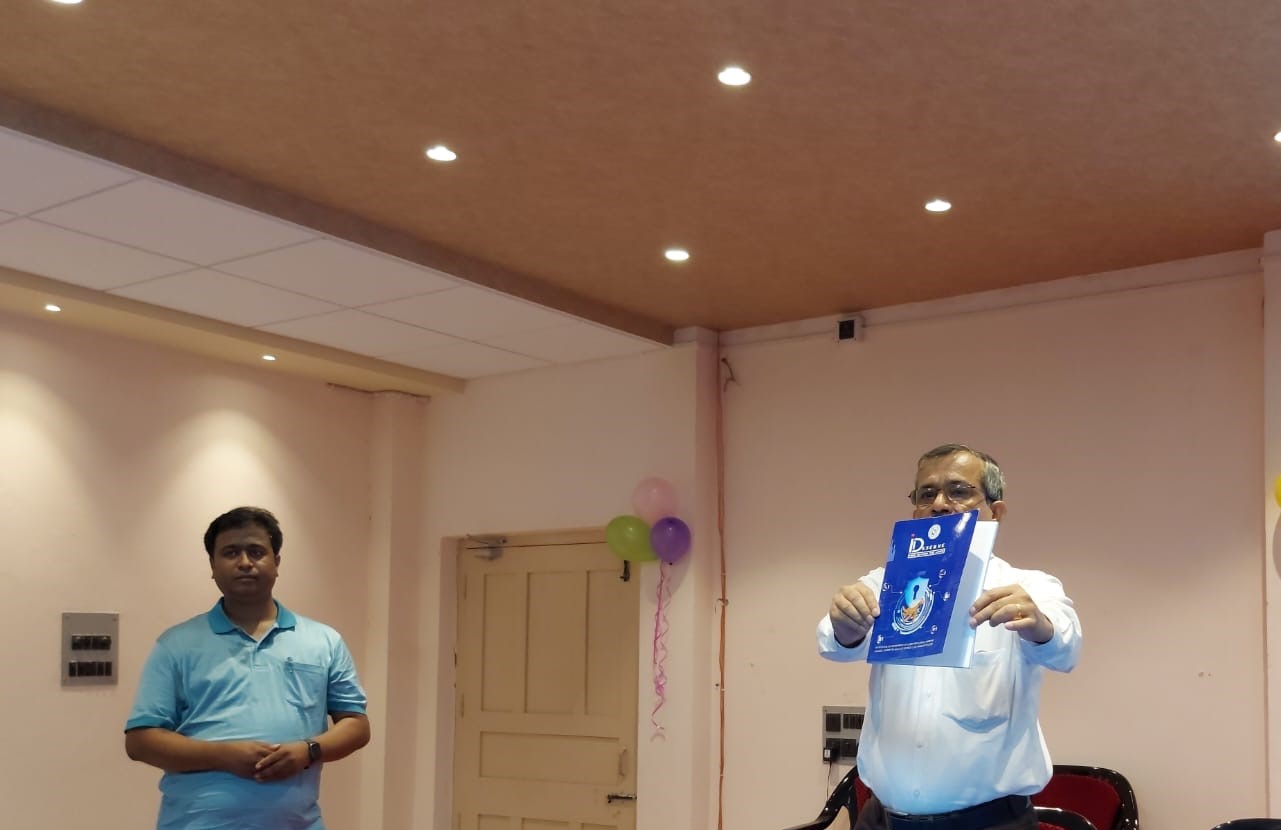
Many departments publish magazines every year in either digital form or in print. Publishing departmental magazines encourage higher student participation than a collective college magazine. The students are encouraged to submit their work such as articles, reviews, poems etc. based on a theme. The Department of Computer Science publishes their magazine “I-Deserve” every year in both digital and print form.
Problem Solving Learning
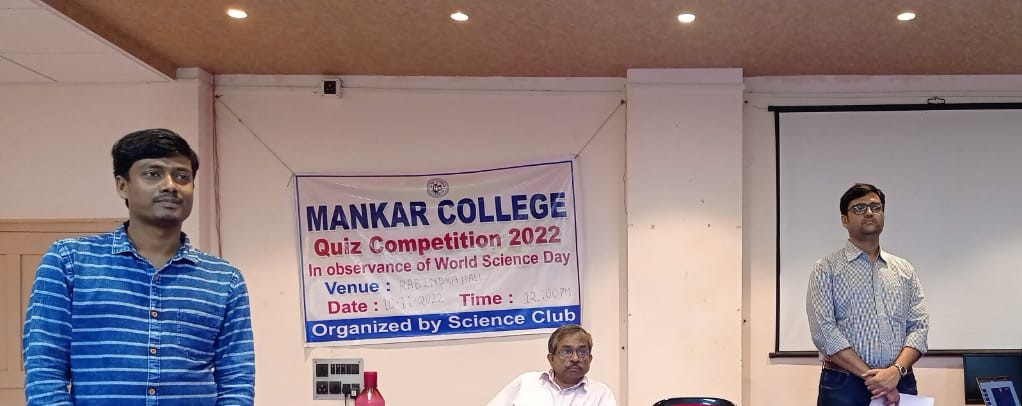
1. Assignments:
Assignments are given out to the students as a part of their academic task. Every department of Mankar College gives out assignments to their students based on the assigned syllabus. These assignments enable the students to practice the concepts taught and help the teachers to assess how much the students have learned and understood.
2. Quiz:
Quizzes are a fun way of motivating the students to thoroughly study a given topic and for the teachers to effectively evaluate the understanding of the students. Almost all the departments conduct quizzes in the class where students are divided in several groups and asked to come prepared on a given topic.
SSR Upload